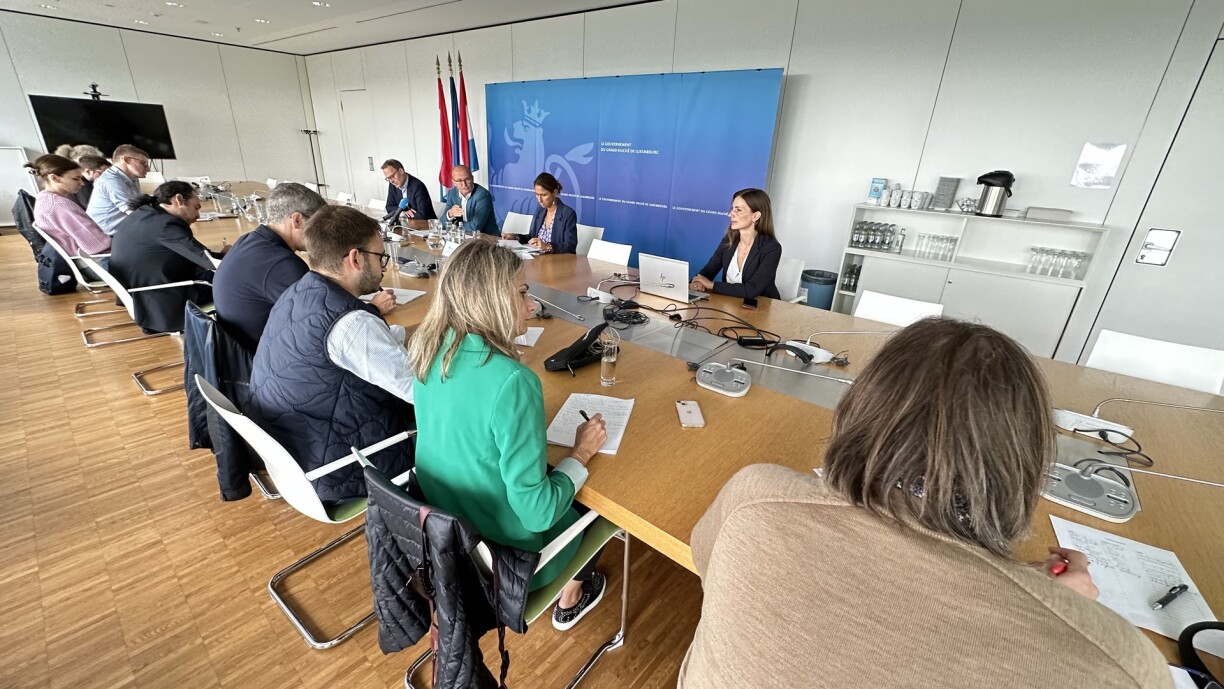
76% of the wind turbines on Luxembourgish soil were built during this period, with plans for further investments in the sector.
The energy crisis triggered by the Russian invasion of Ukraine had shown how important it is to produce as much green energy as possible in one’s own country, Turmes explained.
He commended the unity within the European Union, wherein heads of state and government resolved to fill gas storage facilities in anticipation of the winter season, accompanied by a collective effort to reduce consumption by 15%. In Luxembourg, consumption was even down by 26.3%.
Turmes, a member of the Green Party, highlighted the party’s commitment to participatory policies. This approach aims to incentivise companies, municipalities, and individuals toward sustainable practices through bonuses. Even high-income individuals should benefit from bonuses as a reward for making climate-conscious choices, such as purchasing electric vehicles, according to the minister, who added that social justice should be established through taxes instead.
Turmes identified households as pivotal in the energy transition. The minister emphasised that Luxembourg is the first country in the EU where fossil-fuel heating systems could no longer be installed in new buildings. Owners are to be encouraged to carry out renovations, with the removal of administrative obstacles and the provision of expert guidance. In the same context, the expansion of the Climate Agency into a national coordinating entity for comprehensive projects is on the agenda.
In the realm of renovations, for example concerning heat pump installations, voluntary action remains the guiding principle, according to the Minister for Energy Claude Turmes, who also serves as Minister for Spatial Planning.
Turmes highlighted the collaborative approach that has guided the development of Luxembourg’s national and environmental policies. A consultative process involving municipalities and civil society has played a pivotal role in determining areas suitable for development, infrastructure, and preservation. Significant planning endeavours, such as the “Guiding Programme for National Planning” and the international consultation “Luxembourg in Transition,” have led to concrete projects, including the comprehensive revision of Foetz’s activity zone and a new mobility concept for Esch/Belval.
Concluding on an emotional note, Claude Turmes stressed that the goals in the field of energy and spatial planning are not only be about numbers, but about the future of the country. These goals hold the key to Luxembourg’s resilience against potential floods and extreme heat, the incumbent minister said.

In recent years, the Pirate Party has largely supported the initiatives put forth by the governing parties in the realm of energy policy.
MP Marc Goergen, in an interview with our colleagues from RTL.lu, acknowledged the significant strides made in advancing solar energy over the past five years. Nevertheless, the Pirate Party contends that progress has been too sluggish, raising concerns over the upfront costs borne by individuals seeking to install solar systems.
One key point of contention for the Pirate Party lies in the requirement for individuals to cover the entire cost of solar systems before they can benefit. As revealed through a parliamentary question, repayment can span up to a year and a half. The Pirate Party advocates for a shift in responsibility, proposing that either the state or municipalities absorb the initial costs of solar systems. Under this arrangement, private individuals could use 25% of the electricity generated for personal consumption, with the surplus being fed into the public grid.
Regarding incentives for electric cars, the Pirate Party diverges from the approach adopted by Minister Turmes. They propose linking subsidy amounts to the vehicle’s price, with a view to tailoring subsidies in a manner that addresses social disparities. In this framework, those purchasing more expensive electric vehicles would require less state assistance, thus discouraging car dealers from artificially inflating prices to take advantage of subsidies.
The government determines the amount of subsidies based on an electric car’s electricity consumption.
According to Minister Turmes, this is the better approach because even a person who can afford an expensive car would “deserve a reward” for making an effort to protect the climate.
Lastly, the Pirate Party voices disappointment over the rate of growth in the electric vehicle charging station network.